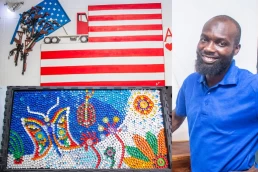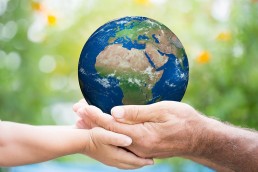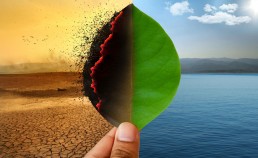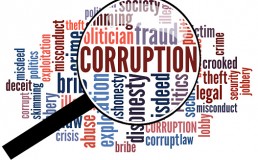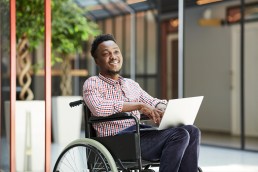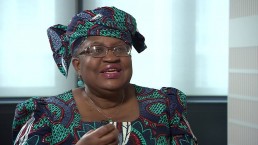PRESS RELEASE: DO TAKE ACTION LAUCHES DO NYSC NETWORK
PRESS RELEASE
DO TAKE ACTION LAUNCHES DO NYSC NETWORK
The National Youth Service Corps (NYSC) was established on the 22nd of May 1973 with the primary objective to mobilise Nigerian youths who graduated from higher institutions both at home and abroad for nation-building and to prepare them for patriotic and loyal service to their fatherland. However, Nigerian youths and citizens perceive the scheme with mixed feelings because of the many hassles, challenges, and hardships corps members face during their service year.
For one, prospective corps members (PCMs) are afraid of being posted to faraway states and sent to interior places as their Primary Place of Assignment (PPA) without any clue as to how to safely get to their destinations.
There is also the fear of being rejected by employers in an assigned PPA. Scouting for another PPA to be reassigned is usually frustrating as the Corps members are in an unfamiliar environment, and could pose a security risk.
Also, there is the problem of getting good accommodation in an area with electricity, water and accessible roads. Few employers offer accommodation to their Corps members, but a greater number of PPAs don’t.
Then, there is the challenge of personal and professional development. Many Corps members finish their service year without a sense of direction. Many go for NYSC confused about how to maximise their service year for personal and professional advancement.
DO Take Action is launching the NYSC Network to help Corps members navigate through the many challenges and confusions they face during their service year.

The NYSC Network is a community built as a support system to help Corps Members navigate the entire NYSC process, from Call-up letter, to travel, PPA, Allawee, Security, and CDS. In return, they are expected to commit to taking action to drive sustainable development in their community.
Benefits of Joining DO NYSC Network
Get Information
- Get the latest update and information about your Service year from NYSC and other relevant parastatals
Guidance and Support
- Get guidance and support on the entire NYSC process, from Call up letter, to travel, PPA, Allawee, Security, CDS, etc.
Opportunities
- Gain on-demand access to professional growth and development opportunities that prepare you for life during and post-NYSC.
Social Support & Networking
- Social and fun events that afford you the luxury to play, relax, meet and network with smart and interesting people.
Administrative Support
- Get a Letter of Recommendation / Reference, and other ancillary support you need to thrive during and post NYSC.
Freebies, Rewards & Giveaways
- Get discounts and freebies that show how much we value your commitment to making a difference in your community.
The NYSC Network is a must-join community for any Corps member that wants to make the best out of their service year.
Click here to join DO NYSC Network and get the best out of your service year.
See you on the inside.
Signed:
Precious Ebere and Century Favour,
Co-Founders, DO Take Action,
Nigeria.
Follow DO across all her social media platforms:
Innovating with waste for sustainable, eco-friendly solutions
Ever returned from a trip abroad to Nigeria and was hit by a nauseating feeling once you hit the roads?
I bet you have.
The vile smell from clogged drains and canals teeming with floating cans, nylon water sachets, empty bottles and other waste materials discarded by humans; incessant waste littering dumps of metal scraps; fogs of smoke from industrial and energy plants, bush burning and refuse burning; and every other unpleasant sight you can think of.
According to a Unido report, Nigeria alone generates more than 32 million tons of solid waste annually, out of which 20-30% is collected. The purported Giant of Africa is ranked among the top 20 countries contributing 83% of the total volume of land-based plastic waste in the oceans”.
But this is not only a Nigerian problem; it is a global challenge. But the third world continent is most hit. As a matter of fact, Africa is home to 19 of the world’s 50 largest dumpsites, the majority of which are in Sub-Saharan Africa. More than 90% of Africa’s trash is disposed of in unregulated dumpsites and landfills, frequently followed by open burning.
It is clear that Africa’s current waste management practices are causing major economic, social, and environmental impacts. The spike in plastic usage and a lack of trash collection infrastructure is causing an increase in marine plastic pollution, which is harming coastal economies. Poor trash dumping, disposal, and burning are causing greenhouse gas emissions to rise, damaging ground and surface water. It also raises the risk of sickness and causes air pollution, both of which negatively impact human health.
However, the growing risks of inadequate waste management present African governments, companies, innovators, startups and individual entrepreneurs in sub-Saharan Africa with a huge opportunity to launch new and inclusive ideas to respond to waste management issues by seeking gaps in the innovation landscape.
The good thing is that many governments and startups are already taking the initiative in creatively and innovatively managing their waste to provide sustainable and eco-friendly solutions.
TakaTaka, a Kenyan enterprise, has actively managed waste collection, sorting, composting, plastic recycling, and acquiring waste from waste materials pickers. The project has reduced Kenya’s carbon footprints and gas emission effluents, resulting in a cleaner and healthier environment while providing jobs for women and youths in low-income communities.
The Ethiopian government has converted the Koshe dumpsite into a waste-to-energy facility that incinerates around 1,400 tonnes of waste materials daily to generate power. As a result, roughly 80% of Addis Abeba’s garbage has been repurposed for energy generation, with the city providing approximately 30% of residential electricity.
Rubbish disposal and management companies in South Africa have invested in innovative technologies to manage waste collection efficiently. These businesses use user-friendly smartphone applications to facilitate timely service, extra pickups, and bill payments through push notifications. This innovative technology has effectively increased cost-effective garbage collection expenses by simplifying waste material collecting processes.
Though the Nigerian government have refused to be proactive in the fight against environmental pollution, there are many success stories where companies and wastepreneurs have generated creative and innovative waste management solutions. Some companies produce apparel and bags from plastic shopping bags and pure water sachets, repurposing plastics into kitchenware and interior design, recycling tyres into furniture, making fashion accessories out of leather wastes, and creating art pieces from junk metals and tins.
Let us consider some Nigerian wastepreneurs revolutionising the waste industry
Ade Dagunduro
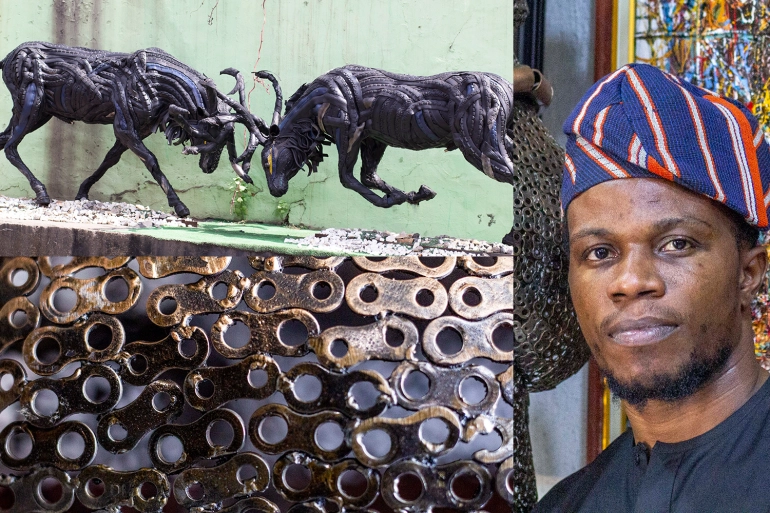 35-year-old Ade Dagunduro, a graduate of Fine Art from Obafemi Awolowo University, Ile-Ife, uses waste materials such as car tyres, scrap metal, rope and plastic to form works of art at his studio in Dugbe, Idaban.
35-year-old Ade Dagunduro, a graduate of Fine Art from Obafemi Awolowo University, Ile-Ife, uses waste materials such as car tyres, scrap metal, rope and plastic to form works of art at his studio in Dugbe, Idaban.
Originally working with traditional art materials such as paint, clay
and wood, five years ago, Dagunduro decided to think outside the box and think of a creative way to do his art. His first work with waste in 2016 was an ox made out of a tyre called The Challenge.
Dagunduro’s latest work, titled Torso, is a female form made from dismantled motorcycle chains – which he picked up from a motorcycle mechanic’s workshop.
Adejoke Lasisi
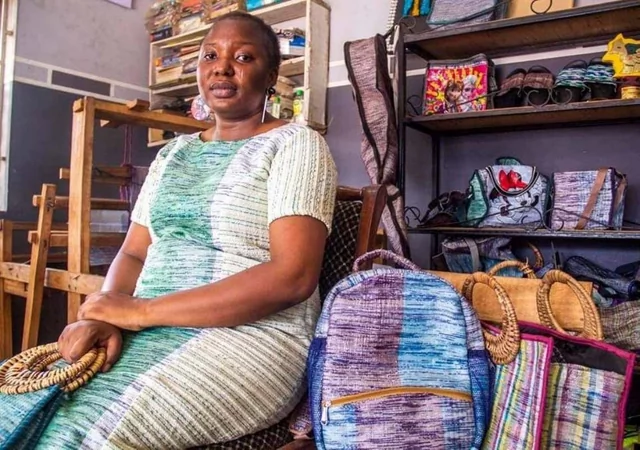 Adejoke Lasisi, who is in her early thirties, comes from a traditional Ibadan weaving family. She’s now using her talent to help her hometown alleviate some of its garbage problems. Lasisi transforms discarded sachets of drinking water into art by weaving clothing, slippers, bags, purses, and mats out of them.
Adejoke Lasisi, who is in her early thirties, comes from a traditional Ibadan weaving family. She’s now using her talent to help her hometown alleviate some of its garbage problems. Lasisi transforms discarded sachets of drinking water into art by weaving clothing, slippers, bags, purses, and mats out of them.
Lasisi has teamed with many organisations and won multiple grants in Nigeria and abroad to train young people in the art since launching Planet3R, her for-profit company, in 2020.
One of her most popular products is a school bag made from 10% ofi and 90% nylon, which recycles 250 water sachets.
Wasiu Arowolo
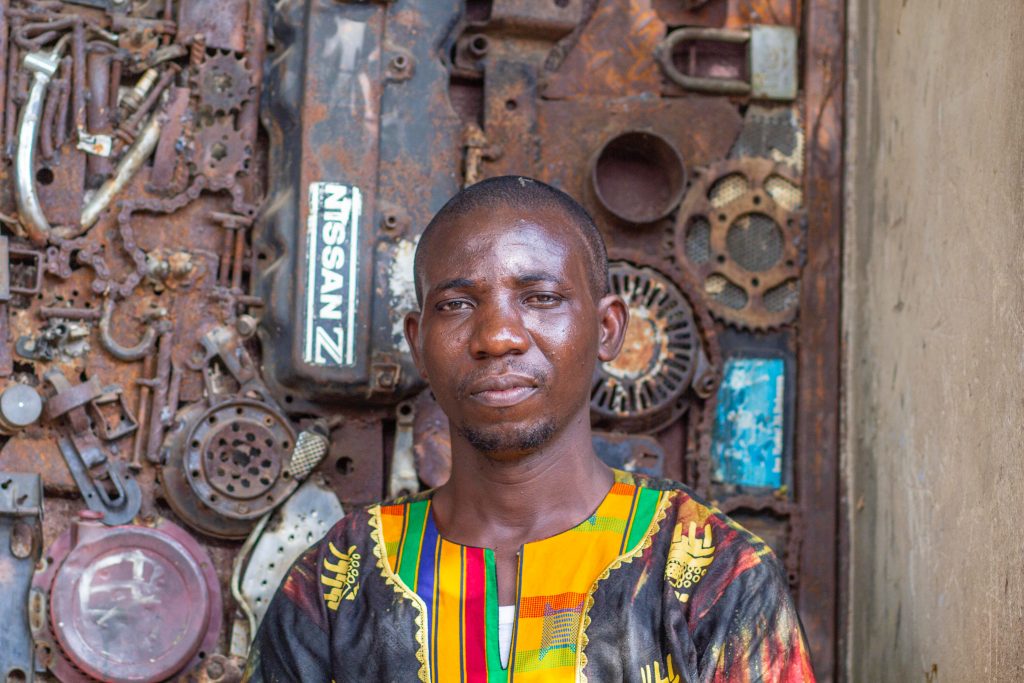 Wasiu Arowolo, the son of a mechanic, had always been fascinated with painting, but art was not considered a serious vocation in his Ibadan neighbourhood. Still, he followed it regardless, getting an apprenticeship at Topfat, a prominent gallery and studio, while his companions went to college.
Wasiu Arowolo, the son of a mechanic, had always been fascinated with painting, but art was not considered a serious vocation in his Ibadan neighbourhood. Still, he followed it regardless, getting an apprenticeship at Topfat, a prominent gallery and studio, while his companions went to college.
Unable to afford art tools and materials, Arowolo looked to nature for inspiration. His first piece was a butterfly made from tin cans, which he sold for 25,000 naira. He is now well-known for his artwork constructed from discarded materials, and his works are in high demand.
Jumoke Olowokere
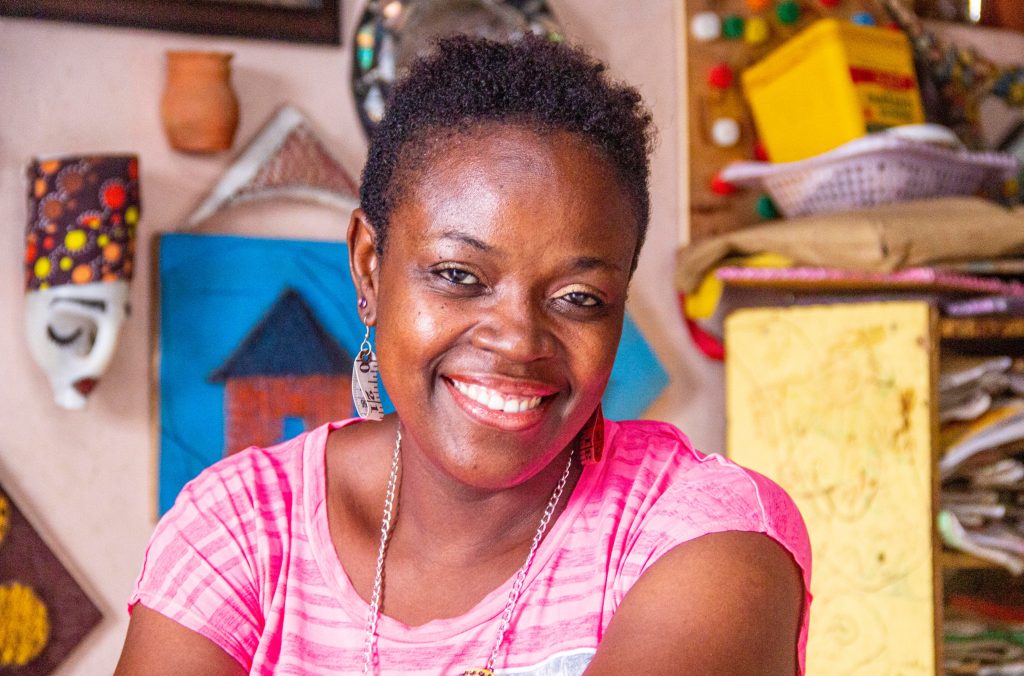 Jumoke Olowokere, 42, creates outdoor play equipment for children and ottoman seats, handwashing sinks, garden ornaments to sell at her shop in Ibadan, Nigeria, and even a big Christmas tree of used tyres and bottles.
Jumoke Olowokere, 42, creates outdoor play equipment for children and ottoman seats, handwashing sinks, garden ornaments to sell at her shop in Ibadan, Nigeria, and even a big Christmas tree of used tyres and bottles.
She celebrated her 40th birthday in 2019 by donating outdoor play equipment to 40 schools in the city, which was created with the kids’ help. They made swings and climbing frames out of old tyres and ropes, decorated with bottle tops. She is the founder of Africa Creativity and Sustainability Hub, where she trains people on how to convert their waste into artworks.
Ibrahim Gbadamosi
Ibra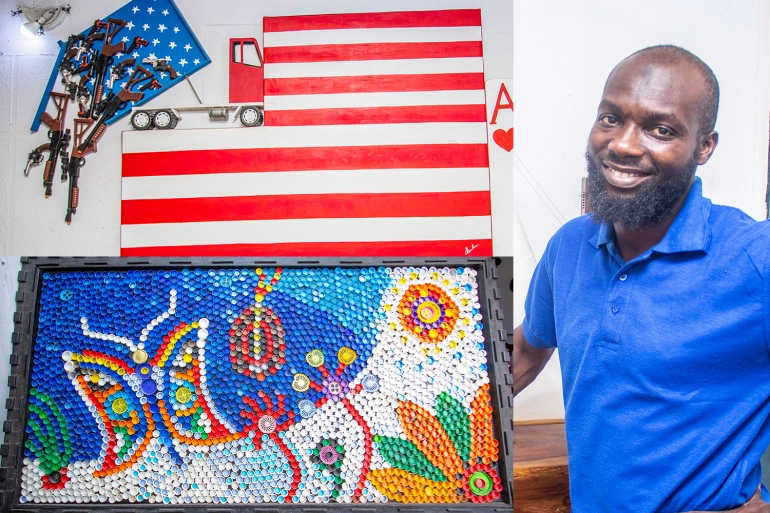 him Gbadamosi, 42, creates furniture and artwork out of garbage. Gbadamosi, a Geology graduate, resigned from a well-paying career to pursue his dream. He went all-in on art after his first solo exhibition in Lagos’ African Foundation for the Arts in November 2011. He got completely into recycling, utilising carpenter’s debris, bottle caps, and plastic due to his family’s lack of funds and support.
him Gbadamosi, 42, creates furniture and artwork out of garbage. Gbadamosi, a Geology graduate, resigned from a well-paying career to pursue his dream. He went all-in on art after his first solo exhibition in Lagos’ African Foundation for the Arts in November 2011. He got completely into recycling, utilising carpenter’s debris, bottle caps, and plastic due to his family’s lack of funds and support.
In his exhibition, these days, the personal and political are intertwined as he utilises his art to make bold statements about the current state of the globe. He brings up gun violence in the United States, for example, in his Politics of Violence series, while About Time portrays a truck attached to the US flag dumping weapons.
Olabanke Banjo
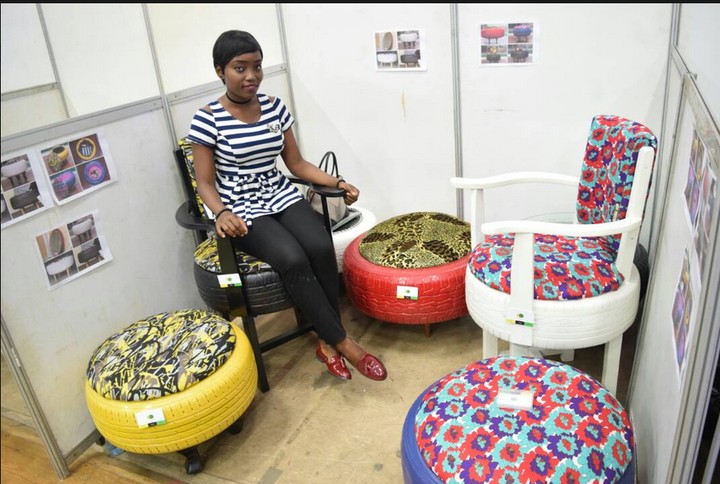 Olabanke Banjo, a former writer and digital strategist, quit her job to pursue a new entrepreneurial venture that combined her sense of creativity with an affinity for the environment.
Olabanke Banjo, a former writer and digital strategist, quit her job to pursue a new entrepreneurial venture that combined her sense of creativity with an affinity for the environment.
She upcycles tires sourced from refuse centres, incinerators, and individuals looking to replace the ones on their vehicle, as well as those found on the side of the road, to create “artsy and ultra-modern” pieces of furniture, including chairs, rockers, and ottomans that happen to be sustainable and earth-friendly.
Today, she is the founder and CEO of Cyrus45 Factory, a décor company that recycles and transforms used tires into interior design. She is just one among the many youths involved in the same venture like Favour Oluma, Ifedolapo Runsewe, Jumoke Olowookere and a host of others.
Many startups like TRASHit, GIVO, the popular WeCyclers and a host of others are driving social and environmental change through trash collection. They offer an automated system for collecting, processing and marketing recyclable materials in exchange for cash.
The list is endless.
People are taking action to rid their environment from the horrid sight of trash and make cool cash.
You, too, can create and innovate with waste.
Join DO and participate in our projects Innovate with Waste and Earn from Waste. These projects are aimed to educate and show people how to create innovative products from waste and earn from it, thereby creating jobs in the process.
You can as well collaborate with us through sponsorships, partnerships, and donations.
#InvestInOurPlanet
Saving African mothers with clean delivery kits
In the West, when women get pregnant, they gosh about how the baby kicks and are eager to find out about the baby’s gender.
African women have much more to worry about.
An average pregnant woman in Africa is worried about giving birth safely. They are scared for their lives and their babies because of the flawed healthcare system. They worry about affording antenatal and postpartum care. They don’t know how to get money to pay for their hospital bills. And if there’s a complication, they are at a loss on what to do.
It is worse for women in rural settlements, and Healthcare centres are usually located in towns and are inaccessible to pregnant women in faraway villages. These women risk giving birth on their way to the hospital and, as such, enlist the services of Traditional Birth Attendants (TBAs) to give birth in their homes.
However, these rural women do not know that they are putting their lives and the lives of their babies at risk. Research has proven that women who give birth at home are more susceptible to complications that could result in death or life-altering disabilities. Some of these complications include haemorrhage, hypertensive disorders and infections.
Data according to United Nations reveals that Sub-Saharan Africa holds two-thirds of the global maternal deaths. At the same time, UNICEF ranks Sub-Saharan Africa as the region with the highest maternity mortality ratio, with 200,000 maternal deaths and 1.42 million newborn deaths per year.
However, most of the complications that result in maternal and infant mortality are preventable.
Post-partum haemorrhage is defined as blood loss of 500 mL or more within 24 hours after delivery or within 42 weeks of delivery. If a healthy mother is left ignored, severe hemorrhage after birth can kill her within hours. Injecting oxytocin immediately after labor minimises the risk of bleeding significantly.
Hypertensive disorders are a collection of conditions that are characterised by high blood pressure during pregnancy, proteinuria, and, in certain circumstances, convulsions. The most significant complications of these disorders for the mother and child are pre-eclampsia and eclampsia. Pre-eclampsia medications, such as magnesium sulfate, can reduce a woman’s risk of developing eclampsia.
Infection is common in Sub-Saharan Africa. Puerperal sepsis is a term used to describe uterine infections caused by bacteria entering the uterus during labour. Endometritis, myometritis, and parametritis are the three primary kinds.
Let’s dwell more on infection as one of the major causes of maternal and infant mortality.
Infections developed after birth cause 10.7% of maternal fatalities and 23% of newborn deaths. Delivery in the home under unsanitary conditions is a key contributor to neonatal and maternal infections, increasing the likelihood of harmful germs entering the mother’s cord stump of the neonate or birth canal. Tetanus toxoid immunisation for pregnant women effectively lowers tetanus-related neonatal and maternal fatalities.
Clean hands, a clean blade to cut the umbilical cord, a clean cord to knot the umbilical cord, and a clean sheet for the mother and baby to lie on after delivery, as well as two clean towels or cloths for drying and swaddling the newborn infant, can considerably lower the risk of infection.
Clean Delivery Kits as a solution
Research by the WHO suggests that pre-assembled clean delivery kits (CDKs) with instructions for use can be a vital component in improving hygiene at delivery, particularly for deliveries conducted by unskilled care providers. Clean delivery kits promote and support clean delivery practices, specifically the ‘six cleans’ defined by the WHO, i.e. clean hands, clean perineum, clean delivery surface, clean cord cutting implement, clean cord tying, and clean cord care.
Clean delivery kits normally contain just six items: a bar of soap, a plastic sheet to deliver on, a razor blade to cut the umbilical cord, a clean string for tying the umbilical cord, gloves and a pictorial instruction sheet that illustrates the sequence of delivery events and proper hand-washing.
Clean delivery kits have incredible potential for improving the health outcomes of mothers and babies; they can be made accessible to remote villages and are affordable for poor rural women.
For more effectiveness, governments and INGOs should integrate community health workers and traditional birth attendants to effectively disseminate the kits to remote communities and villages far from health facilities.
Public and private hospitals should incorporate the delivery kits in antenatal programmes to inform pregnant women of the benefits and encourage them to buy in preparation for their due date. The health workers can adopt a weekly or monthly contribution payment model so that pregnant women contribute in instalments and can afford their delivery kits even before their due date.
Also, government and INGOs should organise programmes at local and community levels to train community health workers and traditional birth attendants on safe, effective and updated birth practices. Their training curriculum should include how to use clean delivery kits.
What we do at DO
DO Take Action run a project, Mother Delivery Kit. The Mother’s Delivery Kit Project is a campaign to distribute sterile birthing kits for safe delivery in underprivileged communities. The Maternal Delivery Kits are designed for home use by untrained and trained birth attendants (TBAs) and women delivering alone.
The content of the kit and the use of its items are as follows:
Sterile razor blade: to cut the umbilical cord
Soap and water: this is used by the mother in labour and the health worker or birth attendant to wash their hands clean.
Gloves: are worn by the health worker or birth attendant to protect the hands and prevent bacteria.
Gauze: is used to control bleeding.
Pads: are worn by the woman after delivery to absorb blood.
Antibacterial wipes: are used to clean the vagina.
Baby cord clamp: is used to tie the umbilical cord.
Delivery mats: are used to provide a clean surface for the mother and child during and after delivery.
Infant receivers: are used to wrap the newborn baby and keep them warm.
Misoprostol: is a drug used to control bleeding.
Instructional pictorial: this guides the health worker or birth attendant on the correct use of the items in the kit.
Join us in advocacy by becoming a Grassroots Development Champion.
You can collaborate as a company or business with us via partnerships and donations.
Save a mother and child today.
The burden of an incompetent healthcare system on Africa
We’ve heard stories of patients who died in hospitals due to poor medical infrastructures. We’ve heard stories of people who died from ingesting fake or expired drugs. We’ve also heard of people who died because they couldn’t afford medicine.
It’s almost like a curse in Africa.
The average African does not have access to an affordable, reliable, effective and efficient healthcare system. The wealthy ones travel outside to receive medical care, including their presidents; they don’t trust their own healthcare system. The poor ones resort to herbal medicine because they cannot access or afford medical care.
Most public health centres are ill-equipped both in infrastructure and professional competence to cater to the medical needs of the people. For instance, hospitals give painkillers as a treat-all drug in some parts of Zimbabwe because there are no drugs in the facility. The situation is worse in government hospitals. While some private hospitals offer better care and have better facilities, they are usually very expensive, located in big cities and only patronised by the high-brows in the society.
Despite that, Africa bears one-quarter of the global disease burden, yet it only has 2% of the world’s doctors. The situation is worsened by the brain drain of homegrown doctors migrating abroad to seek better pay and a better standard of living. The ones left are always complaining about low wages and often engage in union strikes to make their grievances known to the government. During such times, patients are left without medical care and treatment, which either complicates their health or causes premature death.
Africa cannot even produce its drugs. Less than 2% of the drugs consumed in Africa are locally produced; they prefer to import drugs for even the simplest sickness. Except for countries like South Africa, Morocco and a few others, Africa lack the necessary infrastructure, research and resources to manufacture drugs. For a continent immersed in poverty, that is not cost-effective at all.
During epidemics and pandemics, Africa is usually unprepared to handle such situations. The continent relies heavily on support from tier-one countries and INGOs for medical help, supplies and relief. They cannot even make a viable contribution because they do not have a good structure to collate medical data that will aid in pharmaceutical research and development. That is how messed up the African healthcare system is.
To add salt to the injury, Africa’s inept, corrupt and bureaucratic public sector supply system is often plagued by poor procurement practices that make drugs very costly or unavailable. Often more than not, medical staff in public health care institutions tend to sell free drugs and theft for personal use illegally or resell them through the black market. In addition, these public officers receive bribes to approve drugs for registration or pass drug-quality inspections, which inadvertently results in fake drugs “legitimately” entering markets.
The over-arching burden of incompetence in the African healthcare system is the incessant loss of lives. According to the World Bank, around 80% of Africans rely on public health services, primarily those in the middle and lower-income brackets. Many patients die of easily treatable ailments due to persistent drug shortages in public health institutions.
There is the case of disability. Many persons with disability were victims of an incompetent healthcare system. It is either they were not vaccinated, as is the case with Polio patients, or they were not attended to on time, or they were given sub-standard or wrong medications, or their medical personnel was not competent enough to handle their case, or there was poor infrastructure to facilitate their care. The list is endless.
And of course, the economic burden of an incompetent healthcare system is reflected in the country’s GDP, as dead people cannot work and the money we lose when wealthy citizens fly abroad for their medical checkups and the increasing population of persons with disability that are poor and frustrated.
What do we do?
At present, the healthcare system in Africa demands innovative and multi-faceted solutions to tackle these issues. It has become the need of the hour to look at each challenge and design solutions that ensure a healthy and happy life for its citizens.
State medical support and affordable health insurance
Poor people in impoverished communities cannot afford health insurance and obviously cannot pay medical bills out of pocket, as such state government should have state support to pay a proportion of the medical bills accrued in state and community health centres.
Health insurance should be made affordable to middle-income and low-income earners. Also, employers should provide health insurance as part of the pay package of their employees.
Employ tech-driven medical solutions
Technology can assist African countries in restructuring some of the more traditional and costly methods of delivering care while lowering the cost of care. Such medic-tech solutions include Flying medical aid by the South African National Blood Service employing drones to transport blood to tackle the high mortality rate among women during childbirth across the continent; Hello Doctor, a South African app, provides essential healthcare information, access to advice and a call back from a doctor for 55 rands ($3) a month; Omomi helps pregnant women and mothers in Nigeria monitor their children’s health and chat with doctors on a pay-as-you-go or subscription basis; Pelebox, a smart locker system that dispenses medicine to patients with chronic illnesses; Ugandan mTRAC is a mobile health system to report on pharmaceutical stocks across the country.
Recourse to traditional medicines
Faced with difficulties accessing modern medicines, many Africans resort to ritual and herbal remedies. Instead of ruling herbal remedies out, the government should rebrand and standardise traditional medicine practices. This could improve access to affordable medicine, stimulate local production, and develop and retain its medical talents.
Reduce medical tourism
The most well-known is medical tourism. Many people believe that African healthcare would naturally improve if we could prohibit people from travelling abroad for medical care. Nigeria is one of Africa’s richer countries. According to available data, medical tourism costs us $1 billion each year, which could have been invested in improving the healthcare system.
Combat the brain drain
If we want our medical professionals to stay, we must offer them better salaries, benefits, and career opportunities. We can retain our best brains in medicine while providing incentives for their continuous growth and improvement.
Increase the budgetary allocation
It is a pity that despite the burden of the poor healthcare system in Africa, our leaders are more concerned with borrowing money to equip our military armoury. Not that it’s wrong, but have you checked the national budget? African governments spend between 3% to 6% of their GDP on health. That shows where our priorities are, definitely not in the life and health of her people.
Better collaborations between local and international organisations
Africans in the diaspora, especially engaged in the health sector, need to be engaged in healthcare initiatives in Africa for both investment and expertise. Governments should collaborate with INGOs like WHO, USAID, UNESCO etc., to form people-friendly policies that are more responsive and result-driven and drive sustainable medical initiatives, especially in rural communities. Public-private partnerships can also help proffer innovative ways to improve and accelerate healthcare services in the continent; for example, the partnership between Nortiva, IBM and Vodafone in South Africa to make healthcare more accessible to remote people.
Setting up research and development centres and drug manufacturing companies
African governments must invest heavily into the healthcare system by creating research and development centres where disease research, data analysis, drug testing and analysis can be carried out. It is also paramount that African countries have drug manufacturing companies to reduce the cost of drugs in Africa.
Awareness and advocacy
Finally, people need to be informed on health issues to reduce the burden of sicknesses. Take personal responsibility by organising awareness campaigns in your communities or carrying our advocacy campaigns online.
Finally, people need to be informed on health issues to reduce the burden of sicknesses. Take personal responsibility by organising awareness campaigns in your communities or carrying our advocacy campaigns online.
Join us in advocacy by becoming a Grassroots Development Champion.
You can collaborate as a company or business with us via partnerships and donations.
Your health is your first wealth. Put it first.
Ripple effects of environmental pollution on children's health
In 2020, 1 in 13 children in sub-Saharan Africa died before reaching their fifth birthday. These deaths are usually attributed to natal complications, sicknesses, and poor health system, which is true.
But have you cared to ask the source of the sicknesses and diseases claiming our children’s lives?
Have you stopped to inquire about the conditions that resulted in that birth complication?
The truth is a greater percentage of infant mortality and child deaths in Africa are ripple effects of the degradation and pollution of our environment.
What is the connection between environmental pollution and children deaths?
In Africa, the poor quality of drinking water that faeces, chemicals or infectious organisms have polluted is a critical problem. Bad water can cause life-threatening diarrhoea and vomiting in children. On the other hand, insufficient clean water can lead to dehydration and fluid volume depletion. The loss of large quantities of fluids and salts from the body can quickly kill children, especially those under five.
Poor sanitation is another cause of children deaths. Children in urban slums and deprived communities are daily exposed to bacteria from open sewers and refuse dumps. As we all know, a dirty environment is a breeding ground for disease-causing germs and bacteria, and as such, the children are vulnerable. Typhoid, malaria, and other sicknesses are all traceable to a dirty environment. And these sicknesses claim the lives of millions of African children every year.
Emerging environmental risks, such as improperly discarded electronic and electrical waste (such as obsolete mobile phones, cars etc), expose children to pollutants that can lead to diminished IQ, attention impairments, lung damage, and cancer.
When it comes to air pollution, children are most vulnerable. Africa is undergoing serious urban development, but these developments come at a dire price – pollution. The worst is air pollution – both ambient (car exhaust, smoke, industrial emissions) and indoor (use of coal and fossil fuels for cooking and heating, cigarette smoke).
Every second, children breathe air that is so polluted, it puts their health and development at serious risk and ultimately leads to their death. According to WHO, in 2016, about 600,000 children died from acute lower respiratory infections caused by polluted air.
Reports from WHO also reveal that when pregnant women are exposed to polluted air, they are more likely to give birth prematurely and have small, low birth-weight children. Air pollution also impacts children’s neurodevelopment, leading to cognitive defects like autism, IQ degradation, attention deficit hyperactivity disorder (ADHD), etc. Polluted air can alter gene regulation in a way that may impact long-term health. Studies have proved that children exposed to air pollution for as little as one day are liable to higher rates of heart disease and respiratory conditions like asthma, lung cancer, pneumonia, stroke, etc., in their immediate future or later in life.
Another hazard is chemical pollution. Young children and pregnant women are exposed to produced chemicals on a daily basis through the air, water, consumer products, and food. Fluoride, lead and mercury insecticides, persistent organic pollutants, and other chemicals found in manufactured items eventually make their way into the food chain. These chemicals have been shown to be harmful to children’s development. Hundreds more, however, have never been tested for safety or toxicity due to lax government controls, and their potential threats to children’s health remain unknown.
Neurotoxic contaminants, for example, are thought to impair children’s brain development. Even modest levels of lead exposure during pregnancy and early development can result in lower IQ and impaired learning in childhood, juvenile delinquency in adolescence, and an increased risk of violent crime in adulthood. During childhood, exposure to these neurotoxic chemicals has been associated with learning impairments, ADHD, behaviour disorders, and autism. A key unsolved concern is whether there are other chemicals in use today whose dangers to children’s health have not yet been recognised since they have never been evaluated.
What do we do?
We put our children’s future in danger when we make lifestyle choices that are not eco-friendly and sustainable.
Below are ways environmental pollution can be curbed.
Install modern toilets in impoverished communities:
Government, NGOs and INGOs should initiate grassroots programs to curb open defecation and construct modern toilets in impoverished communities. This will reduce the contamination of our environment through faecal materials.
Implementation of policies to reduce air pollution:
All countries should implement WHO global air quality guidelines to enhance the health and safety of children. To achieve this, governments should adopt such measures as reducing the over-dependence on fossil fuels in the global energy mix, investing in improvements in energy efficiency and adopting smart energy choices like wind and solar energy.
Waste management:
Better waste management can reduce the amount of waste burned within communities, thereby reducing ‘community air pollution. Government should provide recycling plants where wastes like plastics, tyres, and other waste are recycled for other use.
Clean energy:
Families should adopt the use of clean technologies and fuels for household cooking, heating and lighting activities; this can drastically improve the air quality within homes and the surrounding community.
Water recycling and treatment:
The government must take the lead to reduce industrial wastewater, supervise proper disposal of wastewater by industries and revive water service companies to test water quality, recycle water and treat used water. Families can also treat their drinking water by boiling, refrigerating and chlorination.
Reduction of chemical use in agriculture:
Reducing fertilisers and pesticides and encouraging manure and other organic products in agriculture will curb the contamination of the soil and water. Also, it will increase the quality of farm produce.
Reforestation and afforestation:
Government should adopt reforestation and afforestation programs to grow back depleted forest reserves; this will reduce the greenhouse effect, absorb more carbon and improve air quality.
Minimise children’s exposure to polluted air:
Schools, children parks and playgrounds should be located away from major sources of air pollution like busy roads, factories and power plants.
Environmental cleanups:
Communities should initiate general cleanup exercises to clean their environment; gutters, sewers, dumpsites etc.; this will ensure that our children grow up in a clean environment and reduce the incidence of diseases and sicknesses.
No smoking policy at home:
Parents should institute a no-smoking policy to curb their carbon footprint, ensuring that children breathe clean air and curb respiratory and cardiovascular diseases. This policy should be adopted in schools, places of worship and other institutions.
What we do at DO
Support a Sick Child project involves gifting a kit of essential medicines, fruit baskets or toys to underprivileged parents and caregivers of children in rural and semi-rural areas.
We could end the diseases and sicknesses affecting our children by simply taking action against environmental pollution.
Lend your voice in advocacy by joining us and carrying out a ‘support a sick child’ project or other related projects in your community.
As a company or business, you can collaborate with us via partnerships and donations to end the menace of environmental pollution.
Save the future. Save our children.
#SaveEarthSaveLife #OurPlanetOurLife #SaveThePlanet #SaveTheCihldren
Save Earth. Save Life.
Industrial and technological advancements gave rise to the ultra-modern and smart world we enjoy today. We drive nice cars, live in posh houses, and have access to gadgets that make life easy.
But at what expense?
Our industries and companies produce tons of chemical wastes and non-biodegradable products that pollute our environment and put the world at risk daily.
Our energy production and consumption emit poisonous gasses into the atmosphere, polluting our air and making it less breathable by the second.
The continuous overexploitation of natural resources has tipped the natural balance of life on planet earth by depopulating and eliminating species of life. Our human activities daily have contaminated life by adding harmful substances to the air, water and soil; these activities have impacted the structure and function of ecosystems, changed our climate and disrupted our biological communities.
Environmental pollution and its adverse effects on our planet have become the mainstream challenge of the 21st century. There are fears about whether life on earth will survive this century, and there are projections of how long we have to fix the earth before all hell breaks loose. We have until 2030, according to WHO.
But, before we go further, let’s understand the fundamentals of environmental pollution.
Environmental pollution is the unfavourable disruption of our ecosystems due to man’s activities and to the extent that it adversely affects the normal optimum environmental and biological processes.
The byproducts of human activities that cause pollution are called pollutants. A pollutant can be in gaseous form (smoke, gaseous emissions from factories, insecticides etc.), liquid form (chemical substrates, sewers etc.) or solid form (metals, bottles, plastics etc.).
The burden of environmental pollution is getting heavier by the second.
What can we do?
Be informed
They say information is power. It will surprise you that many people are not informed about how much their lifestyle and activities negatively impact the environment. Many people are still clueless that using firewood or coal to cook contributes to air pollution.
So, the first line of action is to eradicate the ignorance about pollution and awaken the consciousness of the regular man to make better eco-friendly and sustainable choices in his everyday life.
Enforce environmental policies
We’ve talked about the people who do not know that their activities pollute the environment. What about people that are informed and yet act ignorantly?
CEOs of companies are the worst culprits.
Companies producing bottled water and drinks are aware of the environmental implications of the tons of plastic waste they generate every day yet still produce.
Corporations and business tycoons that rely heavily on fossil fuel to generate energy for smooth operation are well aware of the damage they are causing the biosphere, yet they continue.
The list is endless.
The worst part is that they pay off the government to look the other way.
This has got to stop.
The government should take responsibility for the health of its environment. They should enact and enforce policies that benchmark the amount of pollution that can be tolerated from a company. They should also punish defaulters to teach others a lesson.
Use your voice
We have talked about information as key in ending the ignorance and negligence on environmental pollution. But, how can people know when they are not informed?
Therefore, necessity is laid upon the informed ones to spread the knowledge to the unreached and call out culprits who are informed but yet negligent.
We must raise our voices in advocacy for climate change, global warming, biodiversity loss, water crisis, ozone depletion, greenhouse effect, bad air, and pollution-induced diseases.
Everyone must take responsibility and speak up; individuals, NGOs, INGOs, celebrities, government etc.
Integrate smart and sustainable solutions
It is a given that we really cannot do without most of the things causing pollution in our environment. However, we can start integrating smart and sustainable alternatives.
Elon Musk is already setting the pace by providing smart and sustainable solutions. His company SolarCity provides clean energy solutions that help redress the pollution from fossil fuels.
His car company, Tesla, produces solar-powered electric cars that help redress the air pollution from car exhausts.
And of course, his most prominent company SpaceX seeks to reduce the cost of space exploration and provide an inhabitable planet for the expansion of humanity, which is a thoughtful mission considering the increasing population and depletion of earth’s resources.
Our government should integrate these solutions to help save humanity.
Make sustainable choices
You don’t need to be a leader before you can initiate change. You can start with yourself, your family, friends, and neighbours.
Next time you go to the grocery store or market as we are used to in this part of the world, think about how the products you buy can impact the quality of the environment. Use the 3 Rs to evaluate your choices; Reduce, Reuse, Recycle.
Shun disposable plates, cups, cutleries, and opt for reusable ones.
Ladies, please make a switch to menstrual cups. It’s affordable, comfortable and sustainable.
Reduce bottled and canned drinks consumption and opt for fresh fruit juice. And, of course, reduce the consumption of packaged and microwaved food. It will stop adding to the 5.25 trillion tons of macro and microplastics floating on the open ocean. It is also good for your health.
Suppose you can afford it, grow your vegetables and fruits in your compound. It will increase the quality of air in your surroundings.
Take it a notch higher and plant a tree or two in your neighbourhood. It will ensure you breathe clean air.
Our children deserve a future where catastrophic climate catastrophe is avoided while we continue to power our developing world. A future in which we can feed 10 billion people while also providing cleaner, more plentiful drinking water and safeguarding life-giving lands, lakes, and rivers. A future in which nature’s wild heart continues to beat strong via healthy wildlife and stunning landscapes and our cities are reinforced by harmony with nature.
This has to be the decade in which we save the earth. We must keep our commitments, policies, and coordinated efforts to save Mother Earth from ruin.
What we do at DO
At DO, we have a range of projects tackling the issue of environmental pollution.
The Plant a tree project is an advocacy community-wide outreach to educate people on the impact of deforestation on climate change and how they can help combat global warming using a nature-based solution.
The climate workshop is designed to create awareness and educate participants on the effect of climate change and build the participants’ adaptive capacity.
Innovate with the Waste project is a workshop to educate and show people how to create innovative products from waste and earn from it, thereby creating jobs.
The clean-up project is a youth mobilisation campaign designed for organising youths to clean up their environment or public space that has evolved to become an eyesore, i.e. public waste sites, dirty gutters, etc.
Earn from waste is a community outreach targeted at educating community members on how they can earn from recycling waste. Then work with those interested in picking up recyclable trash and liaise with recycle companies to purchase the trash.
Join us today in this fight against environmental pollution by becoming a Grassroots Development Champion (GDC) and carrying out any of these projects in your community.
Collaborate with us through donations and partnerships to sponsor our quest for a sustainable environment for all.
More importantly, take the responsibility yourself, and the world will be better for it.
#SaveEarthSaveLife #OurPlanetOurLife
Looking through the lens of sports for a sustainable and peaceful future
Ever been to a live game? Did you see the sheer excitement, joy and thrill that accompanied the game? Cheerleaders cheering for their home team. The crowds shouting and screaming in ecstasy. Fans arguing about who is a better player and shouting strategies at their team. At that moment, nothing matters – race, colour, socioeconomic status, gender, religion – nothing. It is almost as though all is well with the world again.
Now that is just a sneak peek into how sport serves as a unifying force on Earth. This was further bolstered when FIFA suspended Russia from the ongoing World Cup for its violent invasion of Ukraine. The suspension signified that Russia has been excommunicated from the global community and cut off from the benefits of being a member state till further notice.
Sports serve as a powerful vector of peacebuilding to boost cohesion among nations and alleviate political animosities. At the grassroots and community levels, sport creates safe environments where people are brought together to pursue a singular goal and interest. As a common denominator and shared passion, sports have the potential to overcome cultural and political divides between groups. Sporting activities can offer people a sense of normalcy during conflict or instability.
A good example is how Nelson Mandela used Rugby World Cup to initiate the healing process of post-Apartheid South Africa and prevent an imminent civil war. Of worthy mention is how Liberia used football tournaments as a “neutral event” during its civil conflict to foster national peace. Even globally, sports have been used to reopen diplomatic dialogues and foster reconciliation between conflicting nations (the Turkey-Armenia and Chinese-American reconciliations are good examples).
In economic development, sporting activities provide job opportunities, curbing unemployment. Sports have a catalogue of careers inherent; athletes, coaches, trainers, nutritionists etc. The multibillion-dollar sportswear and equipment business promotes innovation and commerce while increasing foreign exchange gains during international sporting events. The host country benefits from funds and donations from World Bank and other donors to facilitate the construction of necessary infrastructure. Industries like the hospitality and tourism industry benefit from the influx of visitors to share the country’s national heritage. Even businesses whose goods and services cater to the sporting event benefit. All these explode the GDP of the country, which could be used for national development projects. Whether at the grassroots, national, or international levels, sporting events can strengthen communities’ social and cultural fabric, making them more appealing to investors and tourists.

Talking about social development, sports serve as a powerful tool for changing long-standing perceptions about vulnerable groups and fostering equality and equity. The integration of women in sports and persons with disabilities goes a long way to disprove the lie that women are weak, incompetent and unable to lead, as well as changes the way people with disabilities are seen, boosts their self-esteem, and alleviates stigma. Countries like South Africa have sport-based programs to encourage and empower women in pursuing their dreams and curb gender-based violence and discrimination like early marriage and physical and sexual abuse.
Rwanda has managed to integrate physically challenged children into communal activities by sponsoring sporting tournaments under UNICEF mainstreaming program. The result was increased self-esteem in the physically challenged children and enhanced academic performance.
Sports have been used as a capacity-building initiative for young people. Sports have the inherent values of teamwork, leadership, tolerance and fair play, courage, confidence, self-esteem, equality and equity. Many countries have deployed sports to imbibe these values into youths, especially those in conflict-torn zones. A good example is the “sports for development” program in schools in South Africa which led to an 80% drop in school violence in communities where schools participated. Another example is the 2012 Great Lakes Peace Cup in Africa organised by the World Bank to help former youth combatants rebuild relationships with their communities and neighbouring countries through football.
Historically, sports have played an important role as a strong advocacy platform to promote a culture of peace. International organisations often reach out to athletes to raise awareness through public interest campaigns about cogent issues in society. In November 2014, the World Bank partnered with WHO and FIFA to organise an awareness-building campaign in the fight against Ebola in West Africa. The campaign brought together the world’s best football players (including Didier Drogba and Cristiano Ronaldo) to encourage preventive measures in epidemic-affected communities. Football was also a powerful tool for increasing awareness of HIV/AIDS, with FIFA launching HIV/AIDS prevention and control programs as part of its “football for hope” project.
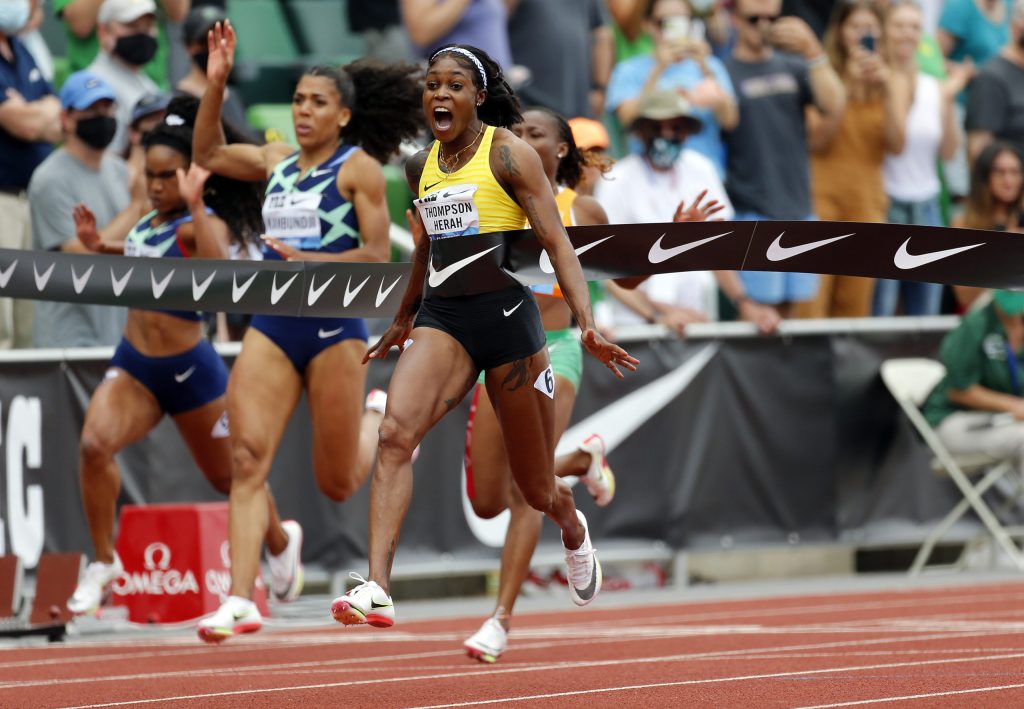 The contributions of sports to global sustainable development and peace are inexhaustible. However, a lot remains to be done.
The contributions of sports to global sustainable development and peace are inexhaustible. However, a lot remains to be done.
The world needs these heroes to capitalise on their global influence and lend their voice more on the issues plaguing the world, comprising poverty, Covid-19, climate change, war, water poverty, drug abuse and addiction. The list is endless.
African sports stars must rise in solidarity and speak up against the continent’s political conflicts. They must use their influence to promote peace, expose injustice and incite economic, social and political development.
Governments, NGOs and INGOs should take advantage of the large audience sporting events afford, to preach messages of peace, goodwill, tolerance, diversity, equality, equity and development.
In light of the Russia-Ukraine war, this is a clarion call to athletes and sportspersons, especially those of Russian and Ukraine nationality, to raise their voices in advocacy.
Remember, if you don’t speak up, nobody will.
Together, let us build a sustainable and peaceful future for all of us.
Happy International Day of Sports for Development and Peace.
Dear Nigerian, is your conscience corruption-free?
The election period draws near.
The battle for the seat of power has started.
Many politicians have declared their intention to run for one office or the other.
And once again, the ritual of campaigns has started where citizens are promised utopia, change, a better economy etc.
We have heard everything they have to say for the umpteenth time. The innocent masses will again cast their votes in hopes of a better tomorrow, only for those hopes to be dashed.
This has been the cycle of democracy in Nigeria.
It turns out that democracy is just an excuse to perpetuate wickedness, loot the national treasury, appoint greedy accomplices to positions of power and share the national cake.
Our leaders don’t think in the long term. They don’t care about the basic needs of the masses; a thriving economy, national security, job opportunities, working infrastructures and functional systems.
Corruption has eaten deep into the fabrics of our dear nation to the extent that Nigeria is ranked 149th in the world’s corruption index. Data according to Wikipedia reveals that Nigeria has lost $400 billion to corruption from their independence year up to 2012. If the trend continues, corruption will cost Nigeria 37% of its GDP in 2030, which will amount to $2000 per person.
Before we start casting the stones on obvious culprits, let us consider the meaning of corruption to understand it better.
Wikipedia defines corruption as a form of dishonesty or a criminal offence undertaken by an organisation entrusted with a position of authority to acquire illicit benefits or abuse power for one’s gain. Corruption may involve many activities, which include bribery, lobbying, extortion, cronyism, nepotism, parochialism, patronage, influence peddling, graft, and embezzlement. Political corruption occurs when an office-holder or other governmental employee acts in an official capacity for personal gain. Corruption is a pervasive sociological problem that occurs with varying degrees and proportions in virtually all countries globally, and Nigeria is no exception.
The alarming rate of corruption, lack of transparency and accountability in governance is responsible for the woes of Nigeria. Once elected into positions of power, our leaders forget their many promises of ‘Eden life’ to the masses. The worst part is that they consciously neglect their duties to enact laws and policies and undertake reforms on mandates to solve key pressing issues in society.
Instead, we see a myriad of political schemes to retain power, suppress the masses, oppress advocates and activists who speak up, misappropriate public resources, and deepen their pockets. This trend is enabled by a lack of transparency and accountability on how public resources are used to address national challenges. Aside from the numerous effects, this trend impedes progress and the generation of national wealth.
Do you know the interesting thing?
These leaders and public officers were once normal citizens like you and me. They grew up in families and communities, and they passed through the educational system from basic to higher institutions. They may not share the same life experiences as you and me, but they sure went through the same process of life.
So, what happened to them to turn them into mean public administrators once they assumed office?
The truth is, nothing changed in them. Money and power do not change a person; but rather reveal their true identity. They have always been corrupt, and they grew up in the same system of corruption.
Nigeria runs on corruption.
It is a hard pill to swallow, but it is the truth.
What do you say about the petty oil trader who mixes her oil with another substance to make it bigger so she can make more profit?
What do you say about the SUG president who promises to represent the student body and fight for their right, but immediately he is elected into power, he goes to bed with the school administration and compromises the rights of those he is to represent?
What do you say about the pastor that conditions his sermons to extort money from his members and mentally engineers their minds to remain faithful followers of his creed?
What about parents who register their children in special centres and bribe examiners so their children can pass their examinations?
Should we talk about the police officers who run the business of collecting money from motorists on the streets of Nigeria?
Or do we talk about the poor masses who sell their votes for a few cups of rice, the thugs and agberos these politicians use to disrupt elections, or the electoral officers who accept bribes to manipulate election results?
Let’s face it.
We are all guilty.
The average Nigerian is corrupt, and organisations set up to punish these corrupt practices are even more corrupt.
Corruption is more than a problem; it has become a stronghold, a system, a culture. It will take more than apportioning blames to drive real change.
What can be done?
Let’s start by looking inwards.
Let’s start with asking ourselves, “Am I a corrupt citizen?”
We cannot demand from our government what we, the citizens, are not capable of giving.
Are we tired of corruption and its adverse socio-economic repercussions in our country? Then, let’s start by making sure we are not culprits.
Business people, traders and their associations must desist from creating artificial scarcity to increase the price of their goods.
Parents should encourage their wards to study to show themselves approved instead of paying for their grades.
The police, armed forces, and any force should commit to their responsibility of national security and protection of lives and properties and desist from intimidating citizens to extort money from them.
Even the poor masses must refuse to sear their conscience and sell their votes for immediate gratification, without much thought for the future.
Everyone privileged to be in a position of power and authority should not misuse it for personal gain but must be accountable and transparent in all dealings.
If a substantial percentage of Nigerians were corrupt-free, transparent and accountable, the burden of corruption wouldn’t be this heinous, and even the corrupt ones would be fished out and duly punished by the law.
Furthermore, we must devise mechanisms to hold our leaders accountable in all their dealings. We must allow them to run around like loose cannons. Complaining on social media will not do us any good. It is time to channel our complaints to the proper authorities and through the right channel. We must demand transparency and accountability from our leaders at all levels. We must keep track of their campaign promises and demand their fulfilment. We cannot sit on the sidelines anymore. We must raise our voices in advocacy and our hands in solidarity to stem corruption in our dear country.
Next, we must teach the future generation the integrity of leadership and inculcate the pride and dignity of selfless service and stewardship.
If we want a better Nigeria, then we must begin now to lay the foundation, create the right system, and instil the right mindset in our young ones with the expectation that when it is time for them to take the baton, they will be the Nigeria we’ve always dreamed of.
Does it mean that Nigeria is hopeless and helpless as it is?
No. Not at all.
Corruption is a grassroots problem. And if we must fight it, we must start from the grassroots level to break down its stronghold, uproot the system and plant a new one.
What we do at DO
At DO, we are steps ahead in the quest to reduce corruption, if not completely eradicate it in Nigeria.
First off, the School Prefect, a Campaigning and Electioneering exercise that enables students to elect their School prefects. The goal of the project is to provide students with a foundational understanding of leadership, government and electoral process, and citizens’ role in electing the right leaders and holding them accountable.
Next is the Voters’ Demand project, an open database where citizens can submit their demands frequently. This project will see that passionate individuals or groups who care about the survival of the people in their community will take action by pledging to report issues in their community that need the attention of their representatives and government. This database would be open to the government and the general public so that government can have collections of the citizens’ needs and demands. The data collected would be disaggregated into the 774 local government areas in Nigeria.
And the last one is the Promise Tracker, a citizen-monitoring platform designed to help communities track issues they care about and use that information to advocate for change with local government, institutions, or the press. Using a simple web application, community groups can design a mobile phone-based survey, collect data using the mobile app, visualise it in maps and graphs to spark dialogue about collaborative solutions. Promise trackers leverage tech to enunciate political promises (often made during the campaign period) and then audit how the politician or party has or hasn’t fulfilled these promises while governing. The tracker scours ruling party manifestos, political party websites, and transcripts of major speeches delivered during election campaigns.
Join us in this fight against corruption by becoming a Grassroots Development Champion (GDC) and carry out any of these projects in your community.
Collaborate with us through partnerships and donations to sponsor our projects towards eradicating corruption in Nigeria.
Lastly, be the change you want to see in Nigeria. Be corrupt-free, and Nigeria might stand a chance to attain the corrupt-free status in due time.
In the spirit of the international day of conscience, let’s drop the culture of corruption and imbibe the “Culture of Peace with Love and Conscience.”
God bless Nigeria.
A disability-free world is possible via immunisation
Lucy Ejike suffered polio as a child and became disabled by it. Her disability notwithstanding, she followed through with her dreams in sports, powerlifting. Since her debut in 2000, Lucy continued to win medals for her country in the Paralympics.
Lucy is one of over 25 million Nigerians living with a physical disability facing discrimination, poverty, abuse, and limited access to education, employment and opportunities.
Lucy was able to get an education and get a life; let’s not talk about all the difficulties she had to pull through. What about other disabled people that can’t as much as afford a good meal a day?
According to the Merriam-webster dictionary, disability refers to any physical, mental, cognitive, or developmental condition that impairs, interferes with, or limits a person’s ability to engage in certain tasks or actions or participate in typical daily activities and interactions.
Disability is a widespread endemic in Nigeria.
In every city, on every street in Nigeria, you see disabled people everywhere trying to make ends meet. Those born into wealth are supported by their families to pursue their dreams still and manage to make a living. A few can learn skills like shoemaking, bag making etc., through which they make a living. Many others have to beg their way through a meal a day.
Education is a costly luxury for persons with disabilities, and many families are not financially buoyant enough to cater to the special education needs of their disabled wards. The visually impaired Nigerian singer, songwriter and music producer Cobhams Asuquo reflected that the New Mathematics Textbook was N350, but the braille version cost N10,000.
In Nigeria, there are no separate elevators for persons with disabilities. So, they have to go through the rigour of climbing stairs to get to wherever they need to be. For Lucy Ejike, it was a hassle to climb storey buildings to get to lecture halls and administrative offices.
Persons with disabilities are denied their political right to vote for and be voted for. Despite the Discrimination Against Persons with Disabilities (Prohibition) Act of 2018, which is supposed to strengthen the institutional landscape for disability inclusion through the Disability Commission, there is little or no implementation yet at all levels of government.
Getting a job in Nigeria is already a hustle for people who do not have disabilities. Imagine what persons with disabilities will have to go through to secure a job. First, they have to endure discrimination from employers and countless rejections. And if they do get hired, then there is the issue of mobility. Nigerian corporate institutions have little or no facilities to help persons with disabilities. This is why the unemployment rate among persons with disabilities is almost double that of the general population.
And, of course, when someone cannot provide for himself, poverty becomes inevitable. Poverty hits differently for persons with disability, and their economic disability is compounded by their physical disability. The worst part is that the government do not even care about them.
Do we even talk about the stigmatisation and emotional implications of having a disability? Persons with disabilities as seen as charity cases, and the first impression they make on anyone is that of pity and sympathy. It can be a harrowing experience to be seen as incapacitated to do anything meaningful.
The burden of disabilities is endless.
What can be done?
Many people have talked about some measures to help the socioeconomic status of persons with disabilities.
But, what if disabilities can be avoided totally through immunisation/vaccination?
A greater percentage of the disabilities people suffer today could have been prevented by immunisation.
Immunisation has helped nearly eradicate fatal diseases and infections such as Polio, Tetanus, Flu, Hepatitis A, Hepatitis B, Rubella, Measles, Whooping cough, Chickenpox, Smallpox, Diphtheria, Haemophilus Influenza, Mumps, Meningococcal, Rotavirus, Pneumococcal disease etc.
Immunisations protect us from serious diseases and also help to keep those diseases from spreading to others. They protect us by priming our immune systems for specific organisms before the infection occurs. When a vaccinated person comes into contact with these diseases, their immune system is better able to respond, preventing the disease from forming or lessening its severity.
Immunisation protects not only your own family but also others by helping to control serious diseases in our community. When a sufficient percentage of a community is vaccinated against infectious disease, it reduces the likelihood of that infection for those who lack immunity. This is what we call herd immunity.
Immunisation is much easier and more cost-effective than treating the disease. Given the high cost of healthcare, it is cheaper to get vaccinated against infection than treat it. By getting your family vaccinated, you save a lot of money that you would have spent on treatment. You also save your family from fatality, disability, or discomfort with the infection.
Immunisation also protects future generations by eradicating diseases. Many diseases like Polio, Chickenpox, etc., are near extinction due to immunisation. So, it is not just about now; it’s also about the future.
What we do at DO
Ability is an advocacy campaign project for the establishment of the rights of people with disability to be recognised as bonafide members of society through encouraging social support, ensuring accessibility to healthcare and education facilities with disability inclusion, and donation of assistive devices such as hearing aids, wheelchairs, pill organisers, etc.
Join us today in this fight against disability by becoming a Grassroots Development Champion (GDC) and carrying out this project in your community.
Collaborate with us through donations and partnerships to sponsor our quest to advocate for persons with disabilities and make life bearable for them.
More importantly, take this as a soft reminder to immunise your family in this month of immunisation.
#LongLifeForAll
Ngozi Okonjo-Iweala: A Serial Glass Ceiling Breaker
Today marks the end of March, Women’s history month.
This month has been an interesting and eventful one for women in Nigeria, from the rejection of 5 pro-women policies by Nigerian lawmakers to the nationwide women’s protests that saw the lawmakers rescinding their decision.
What better way to end this month than to eulogise and celebrate a serial glass ceiling breaker, a woman constantly blazing new trails and setting new paces for women in Nigeria, Africa, and the world.
Dr Ngozi Okonjo-Iweala is an economist, a global finance maven, fair trade pundit, human welfare champion and an international development professional with over 30 years of experience working in Africa, Asia, Europe, Latin America and North America.
The Delta-born economist started her illustrious career after graduating magna cum laude with an AB in Economics from Harvard University in 1976. She went on to bag a PhD in regional economics and development from the Massachusetts Institute of Technology with a thesis on Credit policy, rural financial markets, and Nigeria’s agricultural development. The American Association of University Women (AAUW) awarded her an international fellowship to support her doctoral studies. From there on, Dr Okonjo-Iweala emblazoned her ingenuity on global finance and economy.
Dr Okonjo-Iweala had a 25-year stint at the World Bank as a development economist and rose to the number two position of managing director, operations. She was in charge of the World Bank’s $81 billion operational portfolios in Africa, South Asia, Europe, and Central Asia. During the 2008-2009 food and financial crises, she championed various World Bank programs to assist low-income nations during the 2008–2009 food and financial crises. She presided over the IDA replenishment, the World Bank’s successful drive to generate $49.3 billion in grants and low-interest credit for the world’s poorest countries, and was a member of the Danish Prime Minister Anders Fogh Rasmussen’s Commission on Effective Development Cooperation with Africa.
A true patriot, Dr Okonjo-Iweala answered the clarion call from her country, Nigeria, to serve as the Finance Minister twice (2003-2006 and 2011-2015) and briefly acted as Foreign Minister in 2006; she was the first woman to hold both positions. During her first tenure as Finance Minister in President Olusegun Obasanjo’s administration, she led negotiations with the Paris Club that resulted in the cancellation of US$30 billion of Nigeria’s debt, including an outright cancellation of US$18 billion. She initiated reforms ranging across macroeconomic, trade, financial and real sector issues that steered the fortunes of her country for the better.
In her second stint as Finance Minister in President Goodluck Jonathan’s administration, Dr Okonjo-Iweala initiated women and youth empowerment programmes like the Growing Girls and Women in Nigeria Programme (GWIN); a gender-responsive budgeting system, and the highly acclaimed Youth Enterprise with Innovation Programme (YouWIN); to support entrepreneurs, and create more jobs. She also led reforms like GIFMS (Government Integrated Financial Management System), the IPPMS (Integrated Personnel and Payroll Management System), and the TSA (Treasury Single Accounts); this enhanced transparency of government accounts and strengthened institutions against corruption.
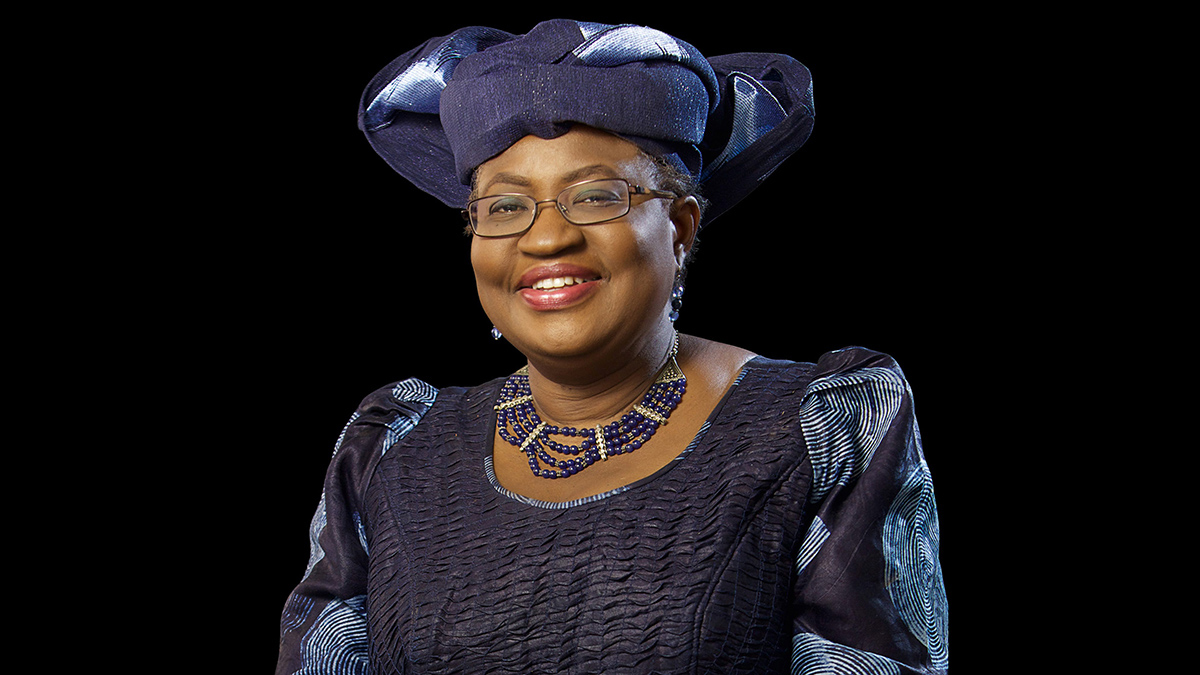 At the international level, Dr Okonjo-Iweala is a force to be reckoned with in the global economic and financial space. She sits on many boards like Global Alliance for Vaccines and Immunisation (GAVI); an organisation that has immunised 760 million children globally and saved thirteen million lives, MINDS: Mandela Institute for Development Studies, Danone, Carnegie Endowment for International Peace, Peace and Security, One Campaign, Twitter, Rockefeller Foundation, Georgetown Institute for Women, R4D: Results for Development, ARC: African Risk Capacity and Earthshot Prize, Standard Chartered Bank and a host of others.
At the international level, Dr Okonjo-Iweala is a force to be reckoned with in the global economic and financial space. She sits on many boards like Global Alliance for Vaccines and Immunisation (GAVI); an organisation that has immunised 760 million children globally and saved thirteen million lives, MINDS: Mandela Institute for Development Studies, Danone, Carnegie Endowment for International Peace, Peace and Security, One Campaign, Twitter, Rockefeller Foundation, Georgetown Institute for Women, R4D: Results for Development, ARC: African Risk Capacity and Earthshot Prize, Standard Chartered Bank and a host of others.
Recently, Dr Okonjo-Iweala was appointed as African Union (AU) Special Envoy to mobilise international financial support to fight against COVID-19 and WHO Special Envoy for Access to COVID-19 Tools Accelerator. To crown it all, she was unanimously appointed the Director-General, World Trade Organisation, becoming the first woman and first African to hold such a position.
What a woman!
Dr Okonjo-Iweala is the author of numerous articles and books. Some of her works include; Women and Leadership: Real Lives, Real Lessons co-authored with Julia Gillard (Penguin Random House, July 2020), Finding A Vaccine is Only the First Step (Foreign Affairs, April 2020), Fighting Corruption is Dangerous: The Story Behind the Headlines (MIT Press, 2018), Reforming the UnReformable: Lessons from Nigeria, (MIT Press, 2012), Mobilizing Finance for Education in the Commonwealth (Commonwealth Education Report 2019), Shine a Light on the Gaps — an essay on financial inclusion for African Small Holder Farmers (Foreign Affairs, 2015), Funding the SDGs: Licit and Illicit Financial Flows from Developing Countries (Horizons Magazine, 2016), and The Debt Trap in Nigeria: Towards a Sustainable Debt Strategy (Africa World Press, 2003). She also co-authored with Tijan Sallah the book Chinua Achebe: Teacher of Light (Africa World Press, 2003).
She is the founder of NOI-Polls, Nigeria’s first-ever indigenous opinion-research organisation, and the Center for the Study of Economies of Africa (C-SEA), a development research think tank based in Abuja Nigeria. She is a Distinguished Visiting Fellow at the Center for Global Development and at the Brookings Institution, premier Washington DC think tanks.
Dr Okonjo-Iweala has a plethora of awards and honours from international organisations and bodies. She has been listed among the 50 Greatest World Leaders (Fortune, 2015), the Top 100 Most Influential People in the World (TIME, 2014), the Top 100 Global Thinkers (Foreign Policy, 2011 and 2012), the Top 100 Most Powerful Women in the World (Forbes, 2011, 2012, 2013 and 2014), the Top 3 Most Powerful Women in Africa (Forbes, 2012), the Top 10 Most Influential Women in Africa (Forbes, 2011), the Top 100 Women in the World (The Guardian, 2011), the Top 150 Women in the World (Newsweek, 2011), the Top 100 most inspiring people in the World Delivering for Girls and Women (Women Deliver, 2011), Condé Nast International’s 73 “brilliant” business influencers in the world. The awards are just too many.
Oh, don’t get me started on honourary degrees. I don’t think I have enough space for that.
The world-renown financial expert is married to her heartthrob, Dr Ikemba Iweala, a neurosurgeon. The union is blessed with four children and three grandchildren.
At 67, Dr Okonjo-Iweala is still ruling the world.
She is a colossus, a role model, an enigma, an institution, and a great inspiration to many women, reminding us of the endless possibilities and greatness in every woman.
Are you still sitting on the sidelines?
Join Dr Ngozi Okonjo-Iweala to #breakthebias.

